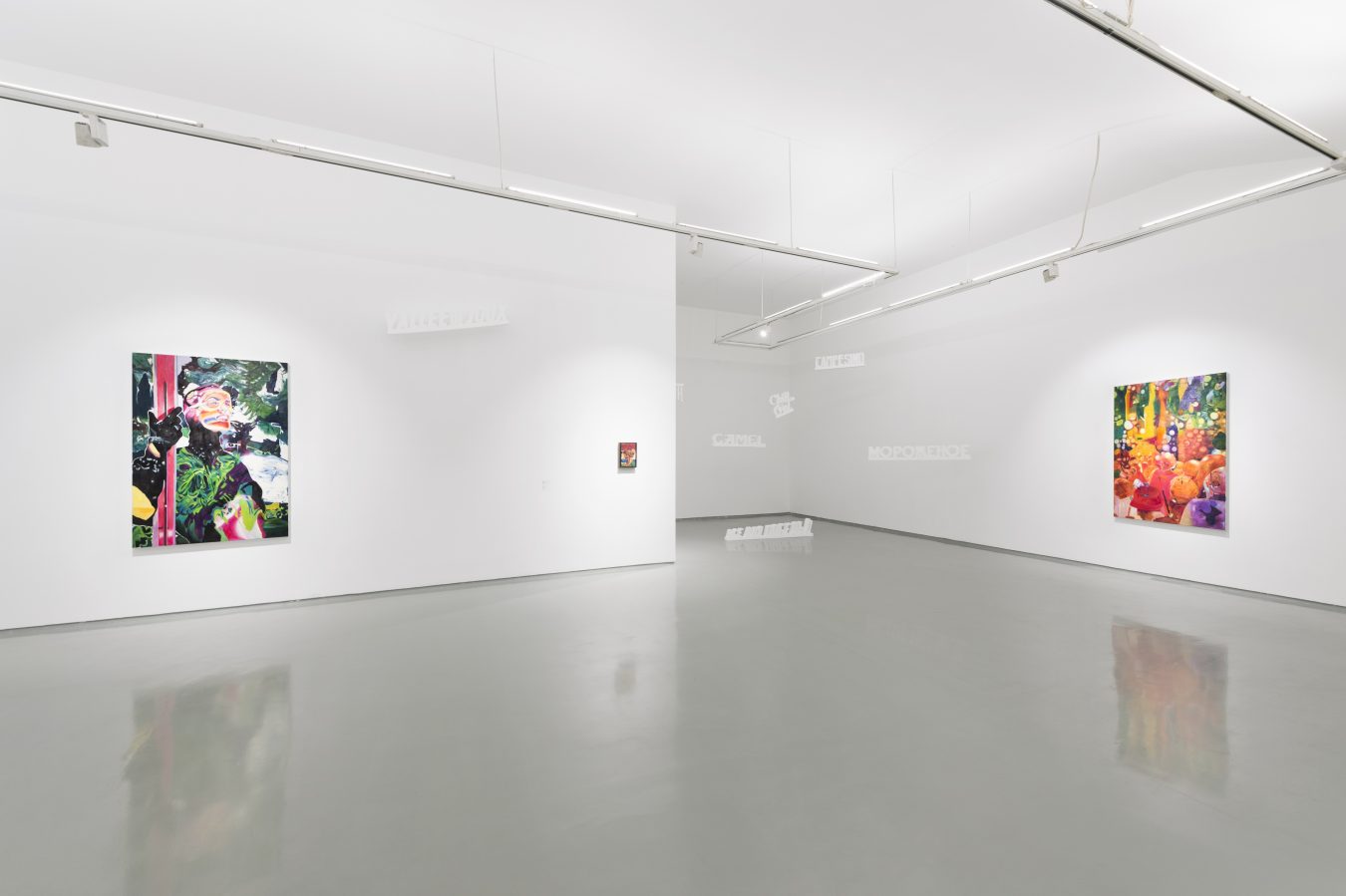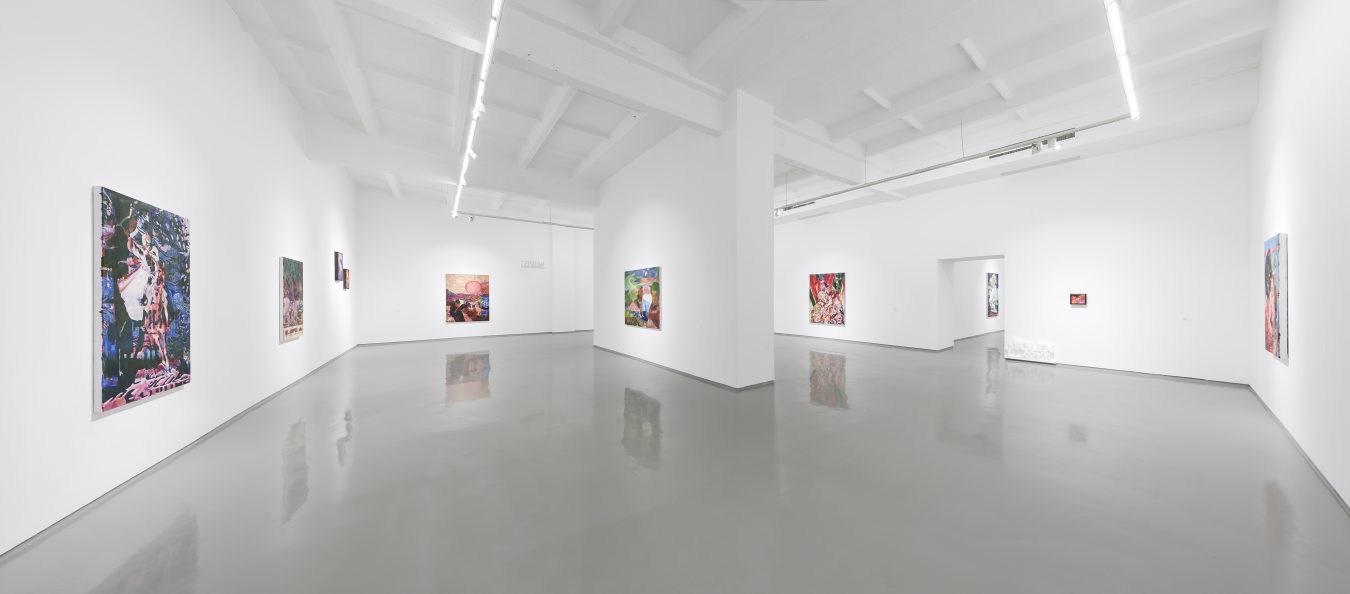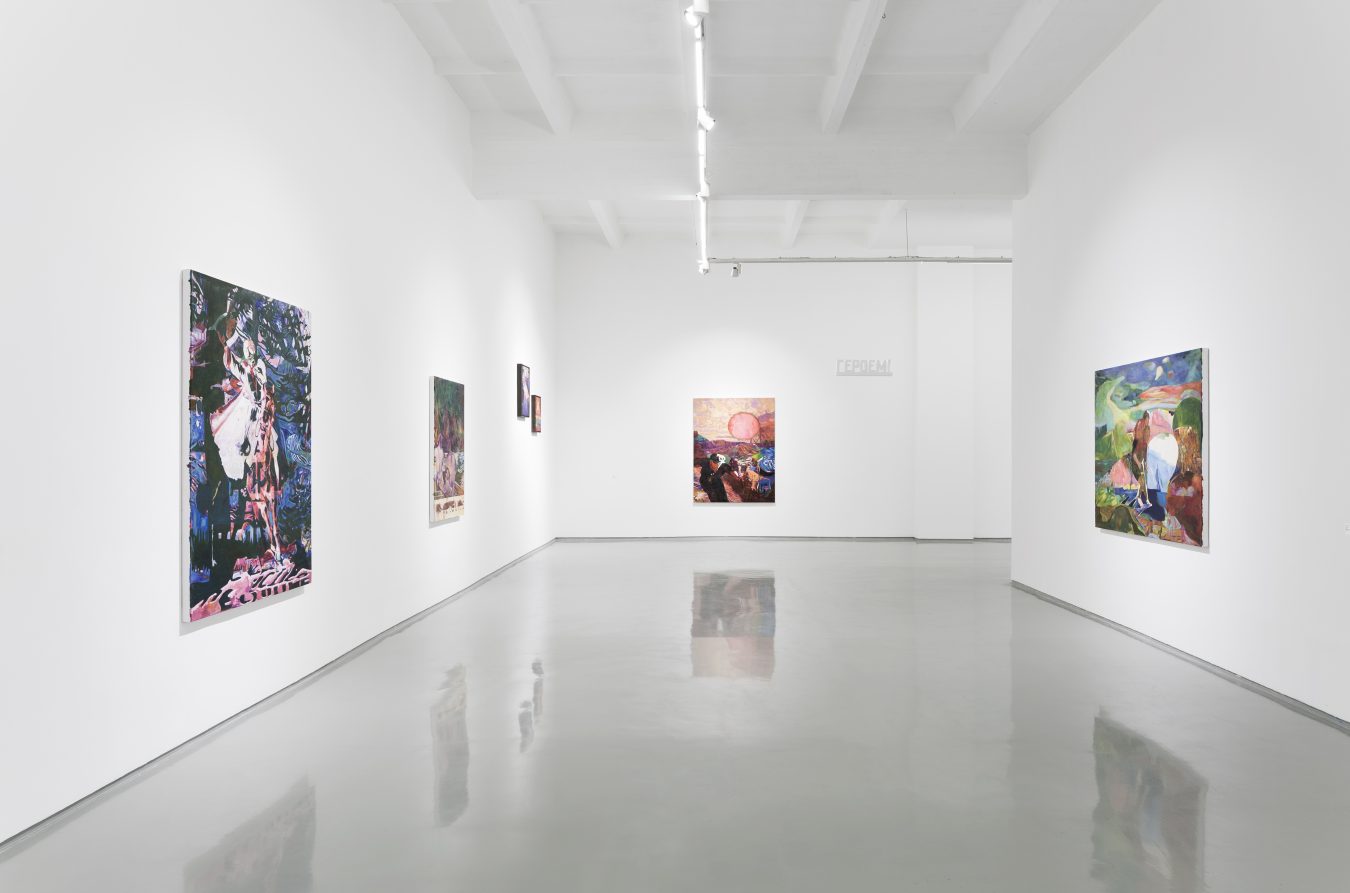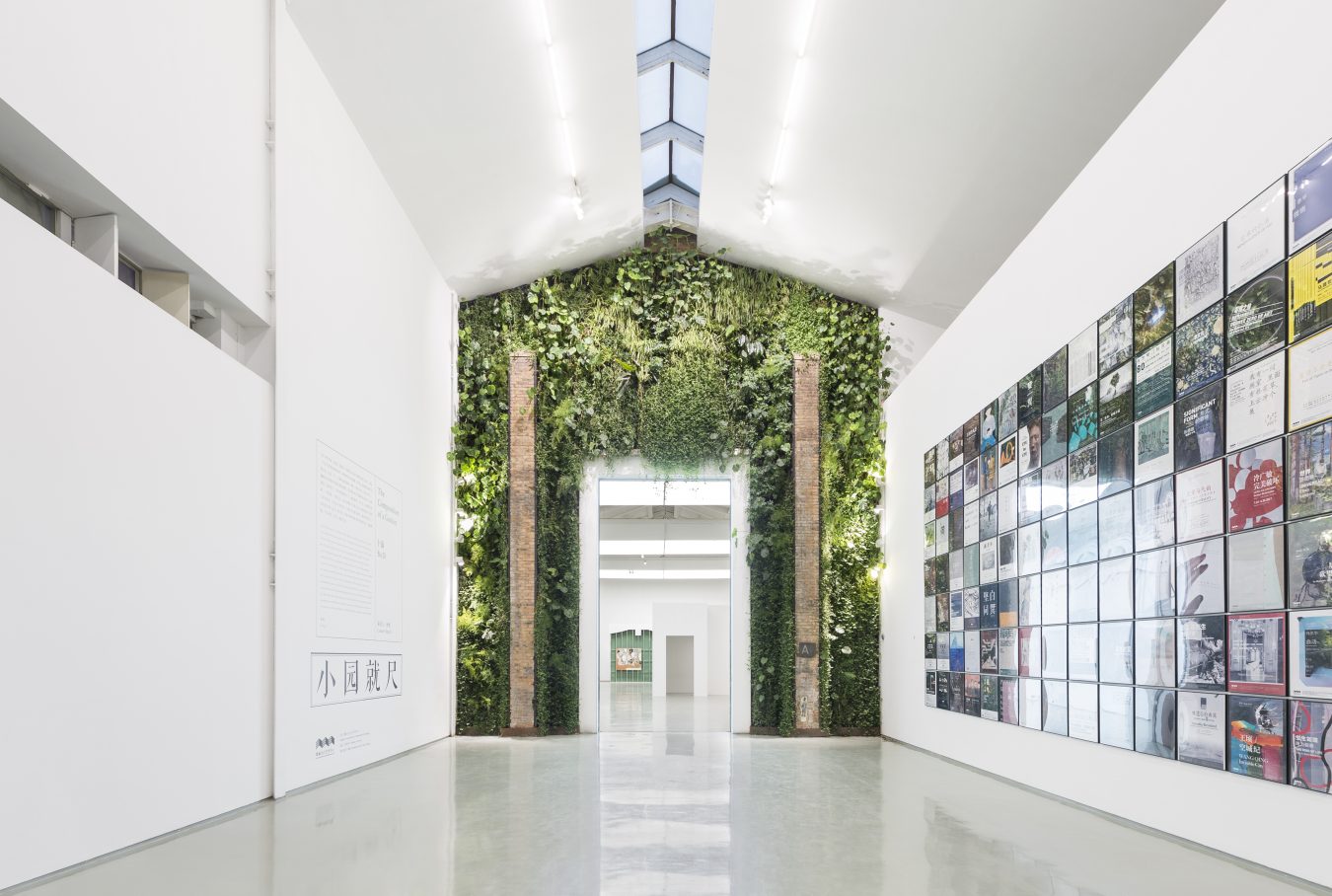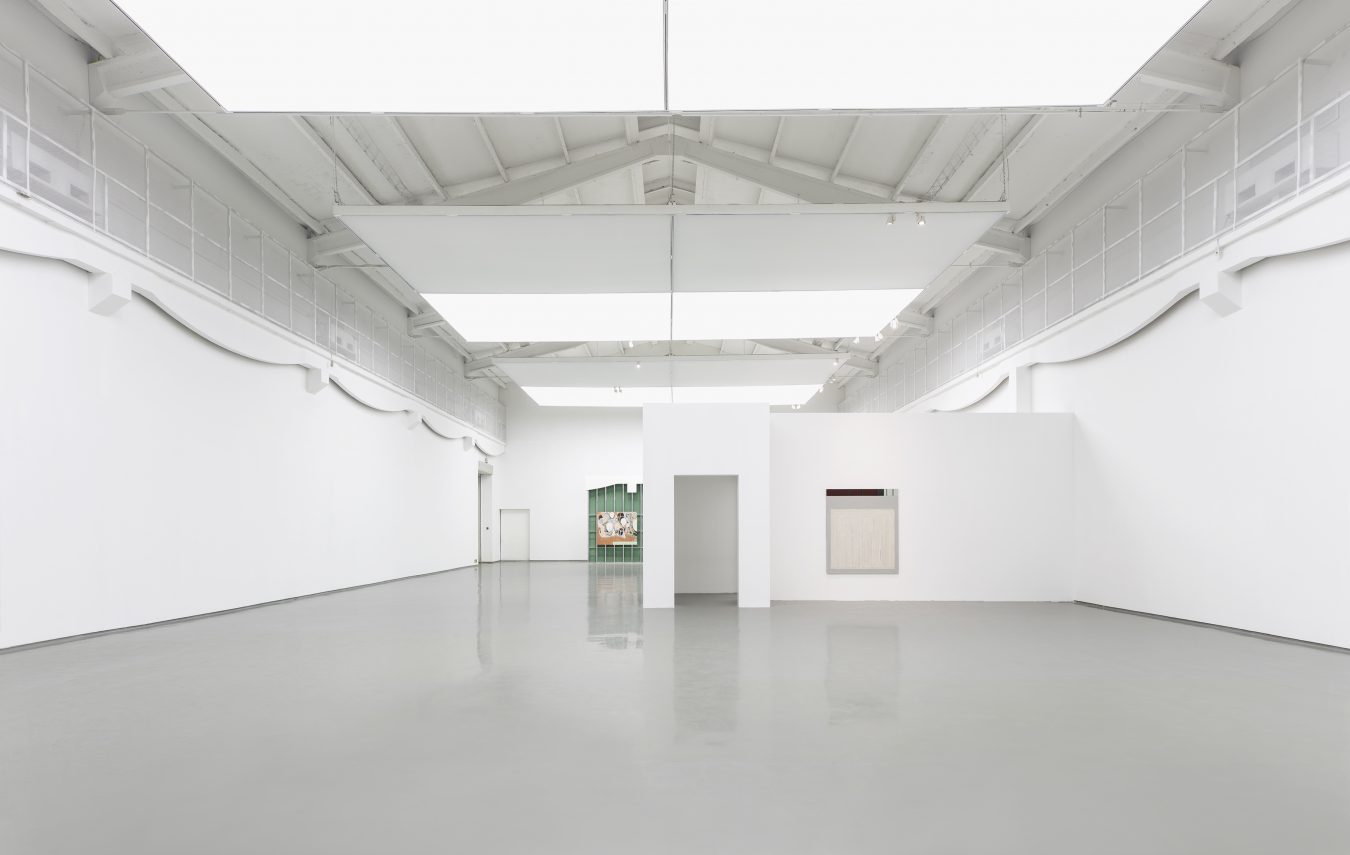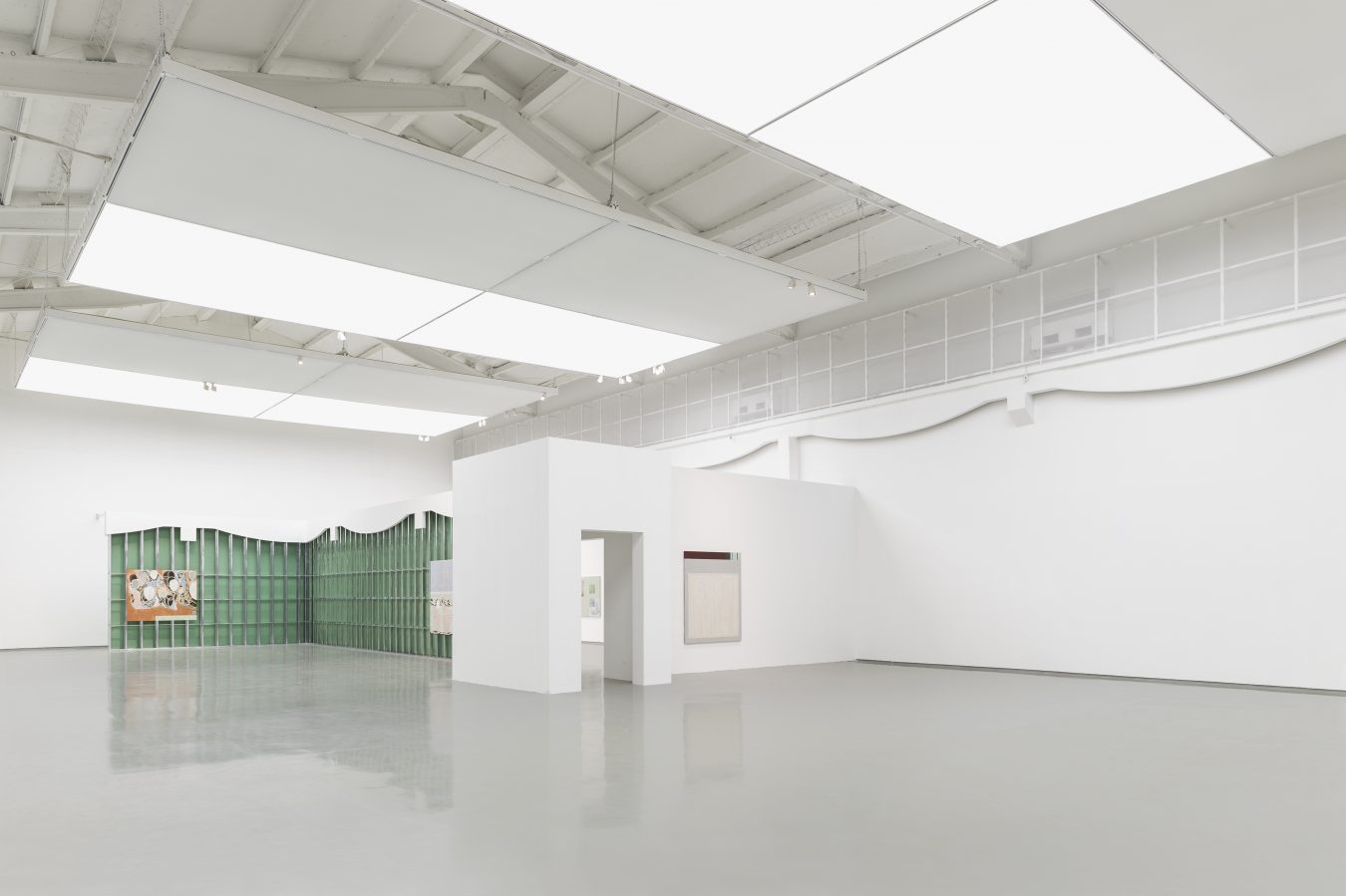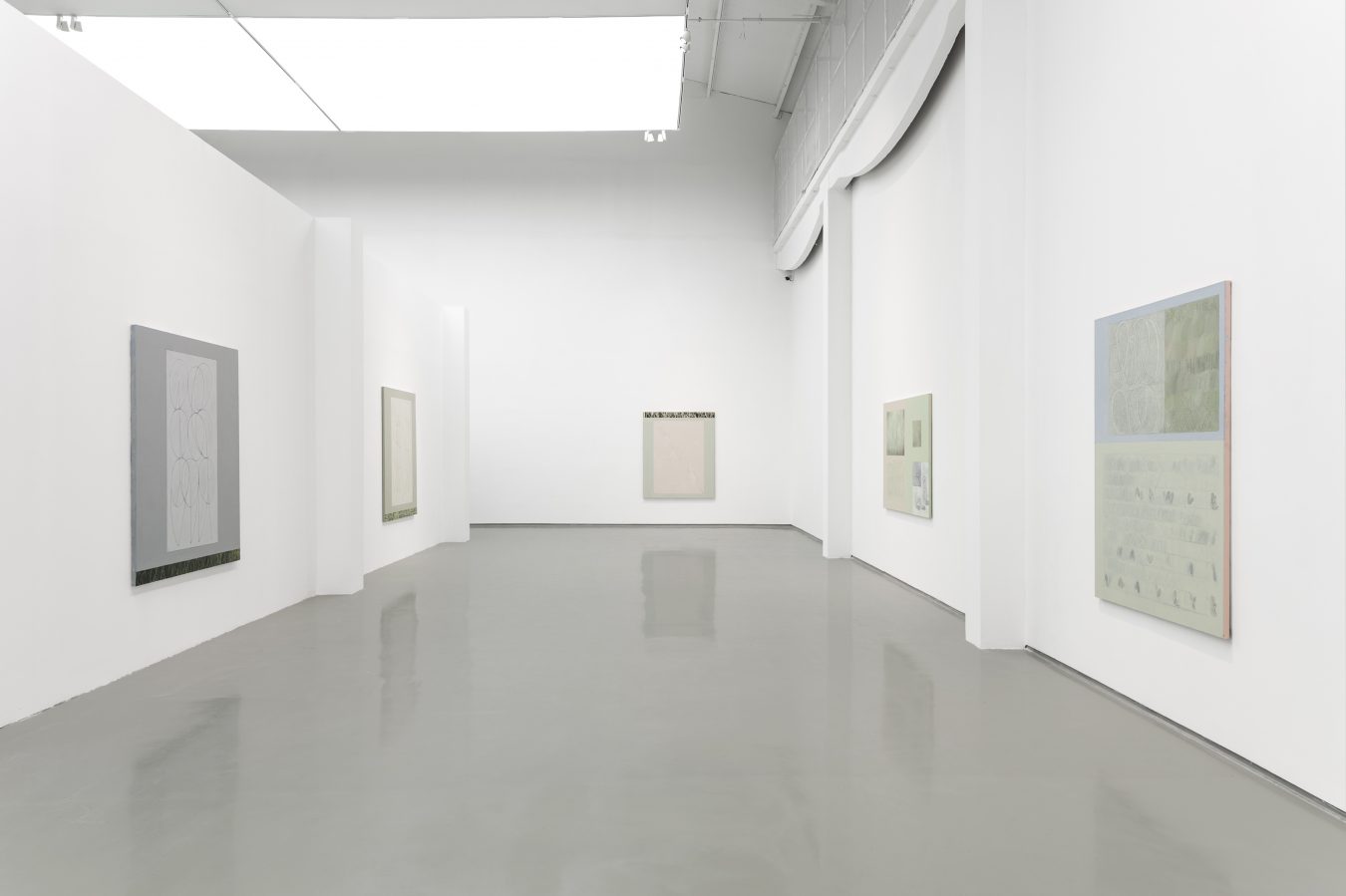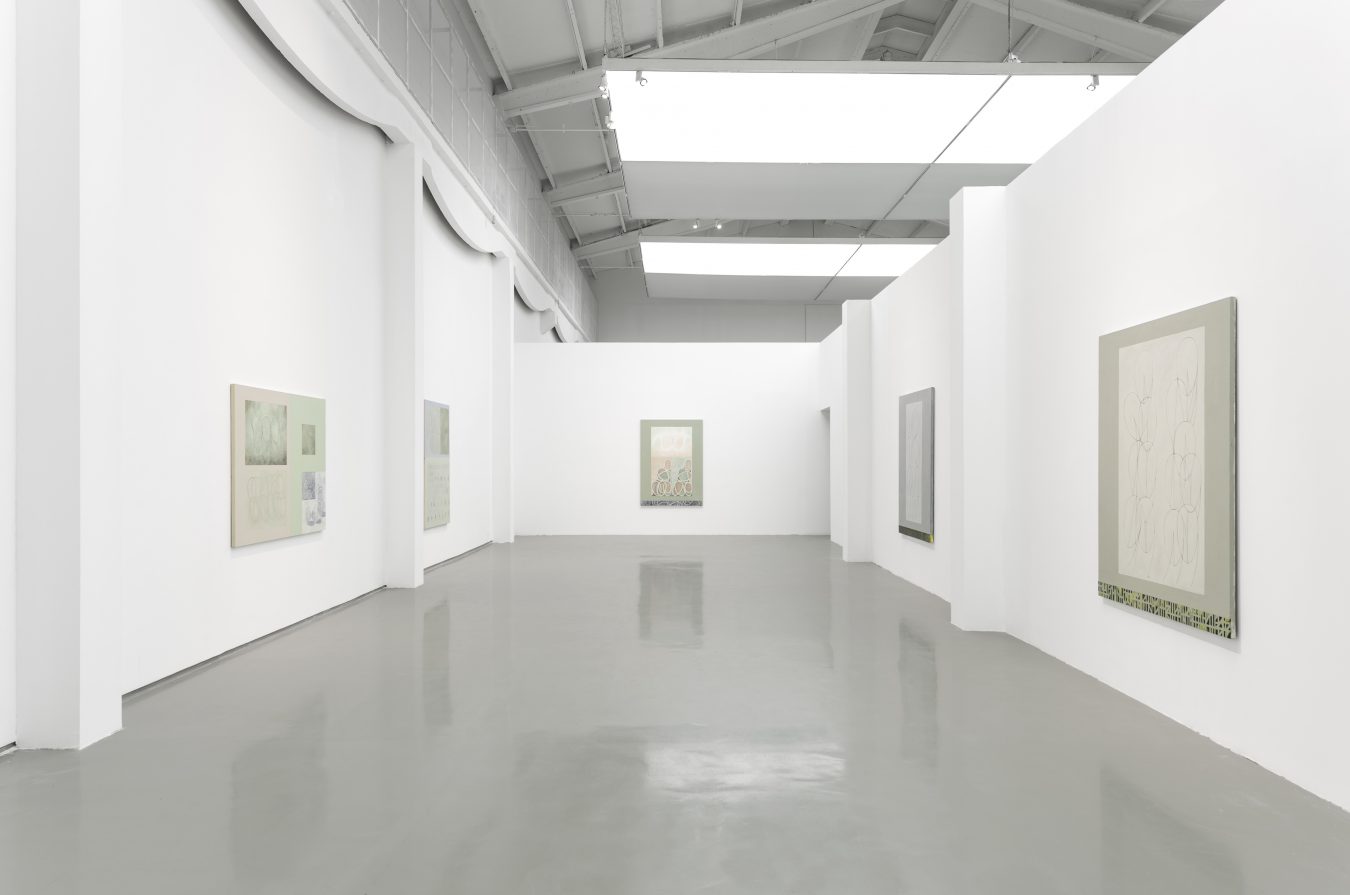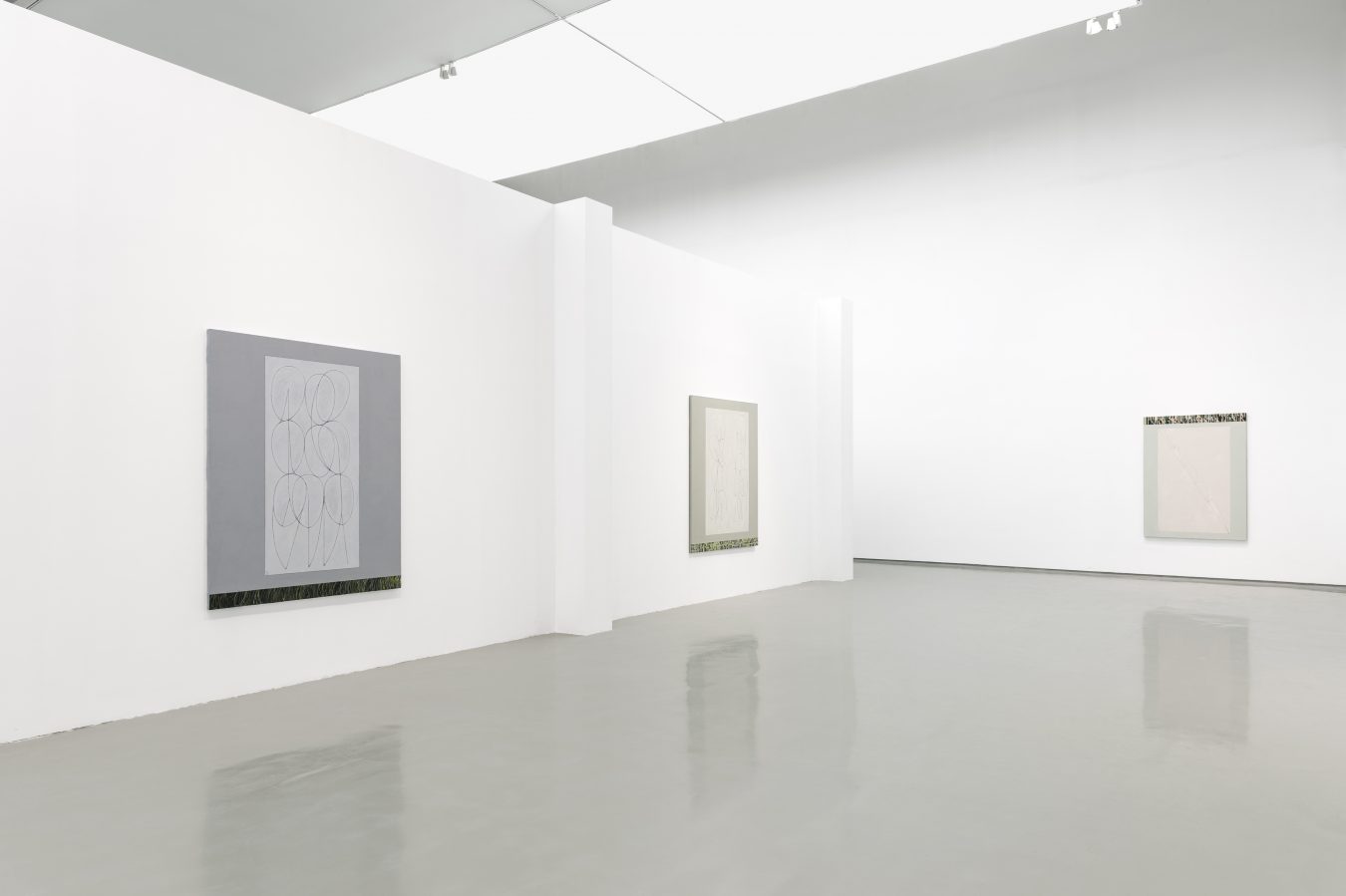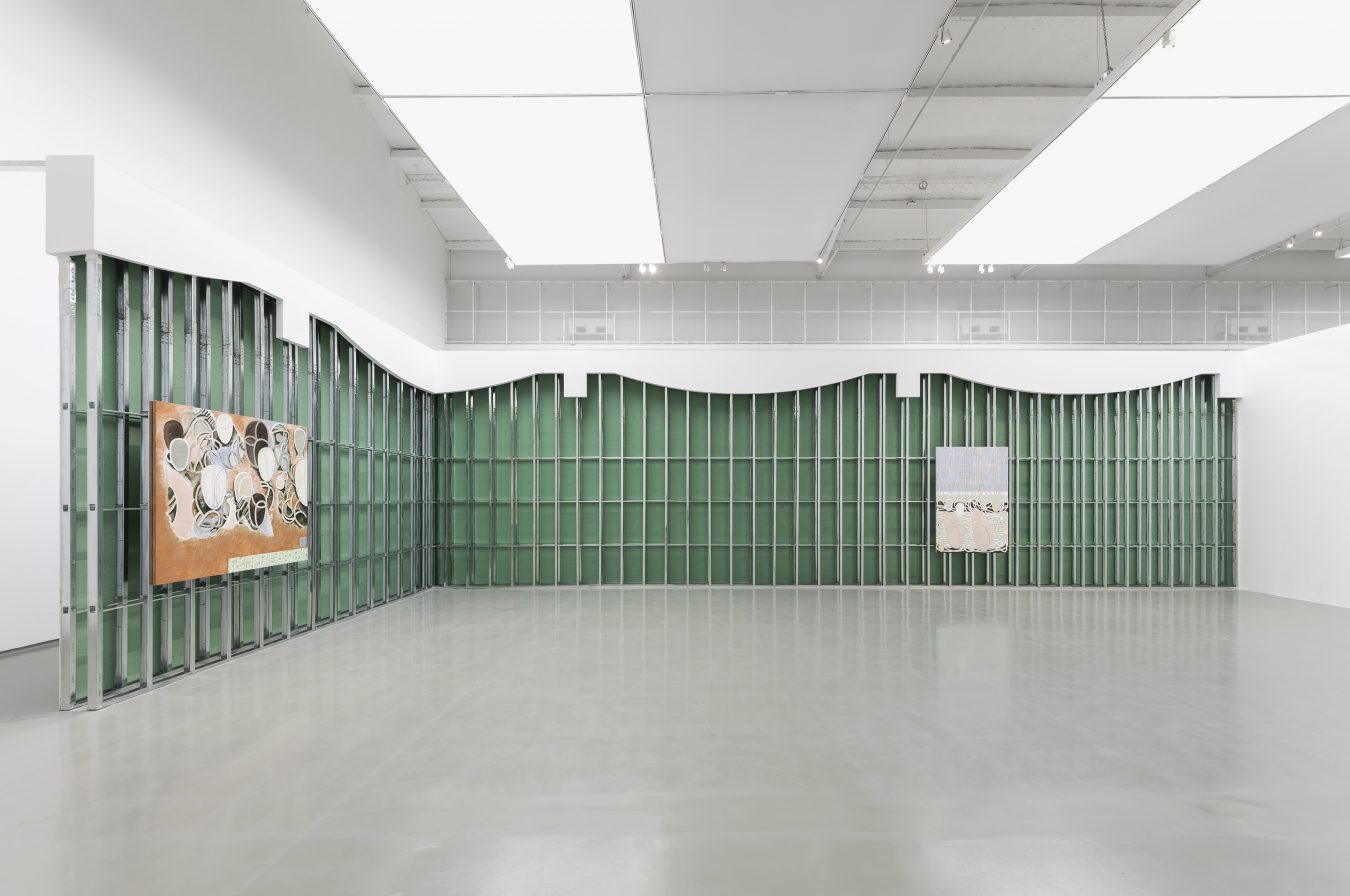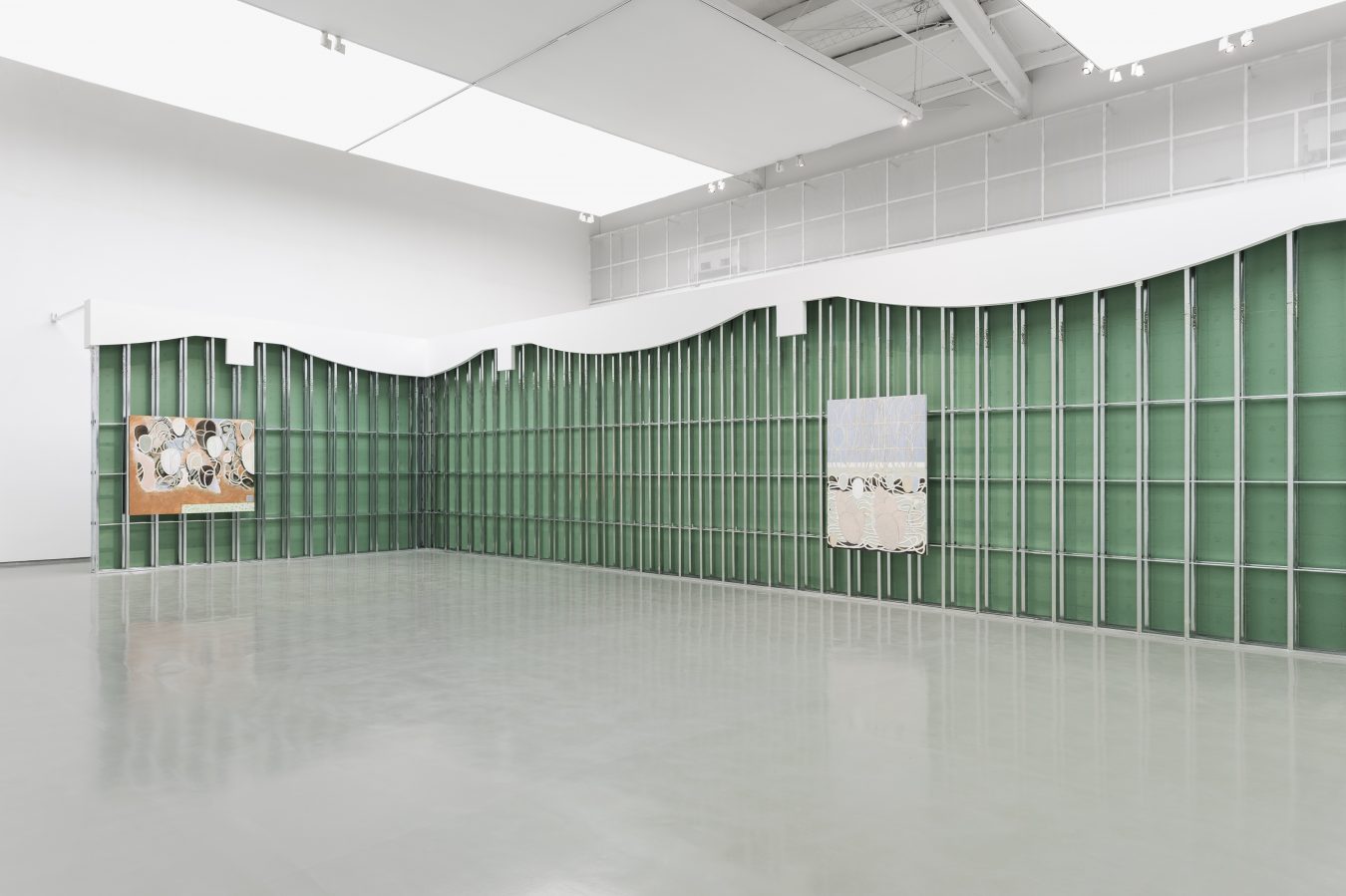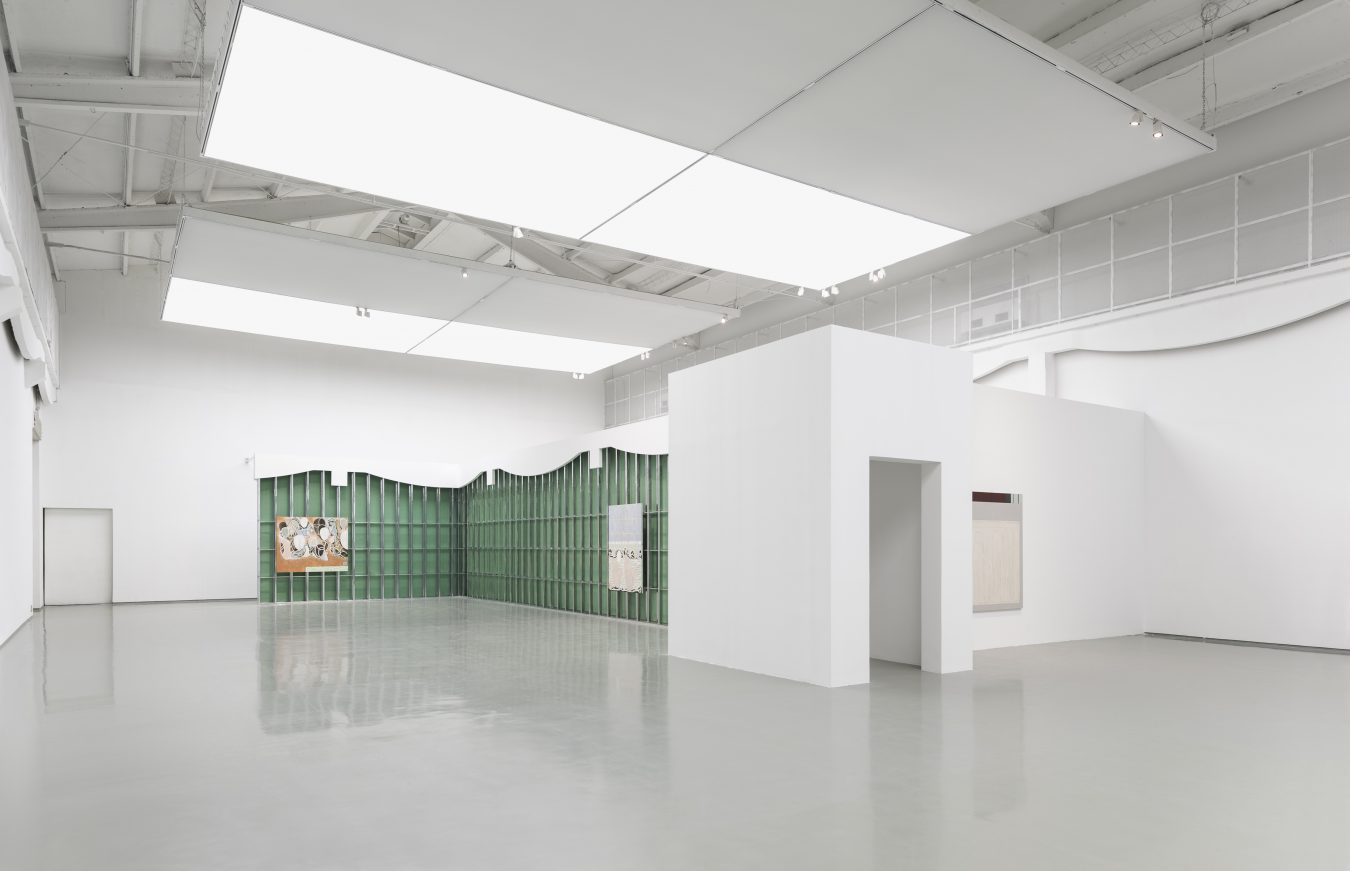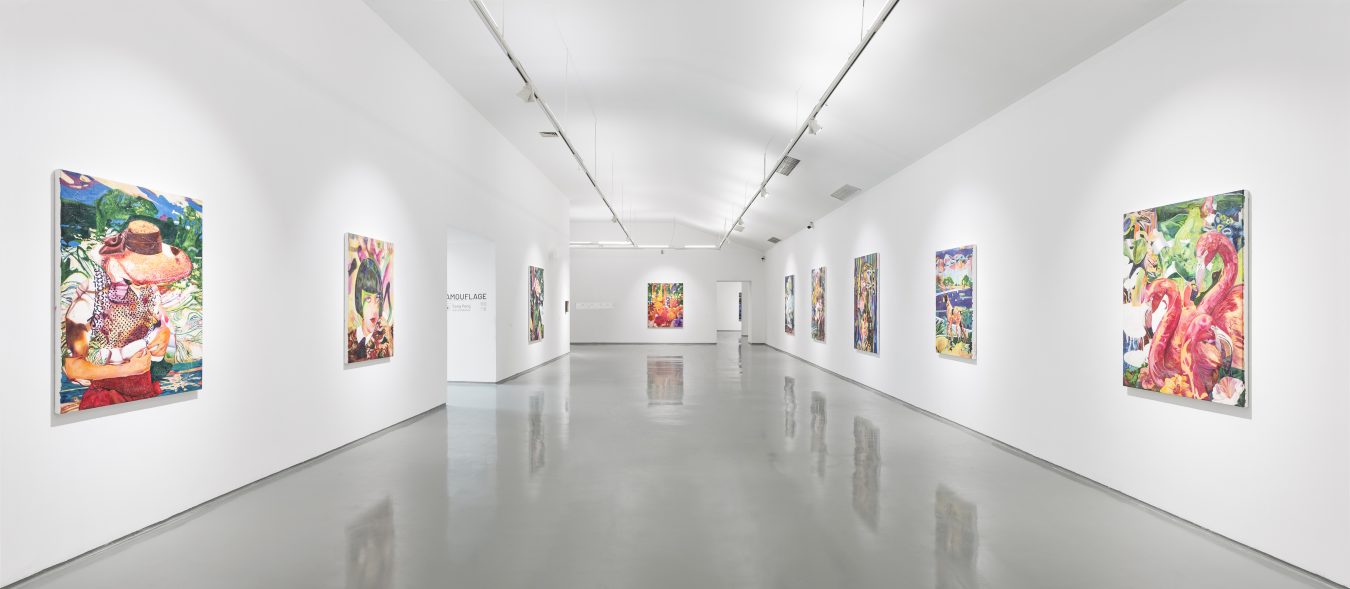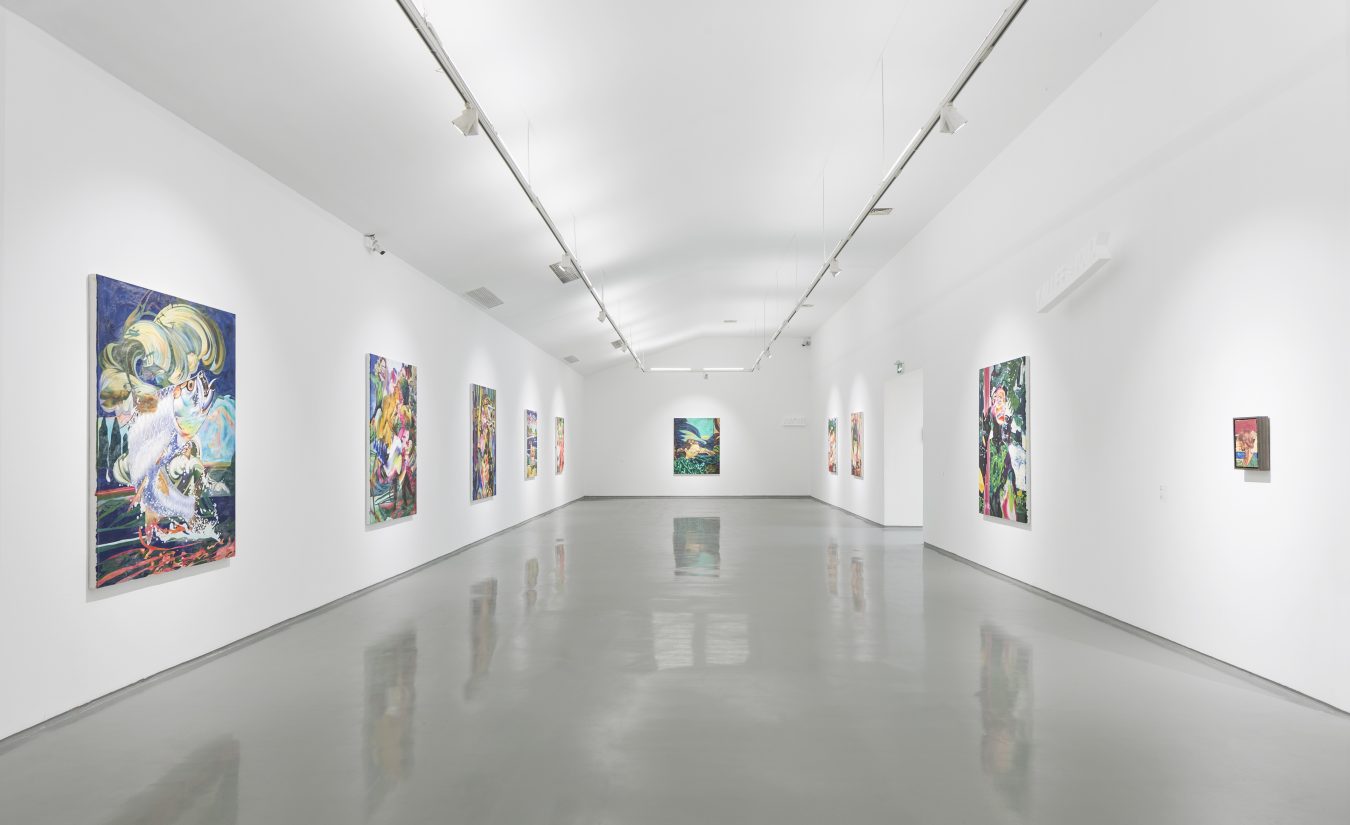Hive Center for Contemporary Art is honored to pronounce that Camouflage: Song Peng Solo Exhibition will be presented at Exhibition Hall C and D from Oct 17 to Nov 18 2020. The exhibition marks the second solo show of artist Song Peng in Hive Art after Perjury & Genesis: Song Peng Solo Exhibition in 2017. Curated by Yu Fei, the exhibition will present the artist’s latest works of painting.
Open and heterogeneous in his adoption of image materials, Song Peng focuses this time on mid-1990s Vintage foreign posters as examples for visual appropriation. So, instead of collaging and implanting images fragmentally in a stage setting he designs like before, he has tried his best to retain the original style of the images in his painting, which conceals deliberately the familiar impression that reminds one of Song Peng’s authorship, and highlights the cultural attribute and highly decorative aesthetic trait of every image source. As for the technical part, he has abandoned the expressionist way of expressing feelings, left out smearing, scraping and dripping that tell of body actions and adopted even painting – to take good care of every detail of the painting and adjust different styles and suitable color saturations – all for evenness, brightness and glossiness, just as the facial expression behind a mask is unreadable.
There’s reason to believe that Song Peng’s turn in art-making started not only out of his love for some retro touch, which only acts as a disguise in style so as to hide the artist’s view of history deep beneath his painting. The application of images as a tool for ideological communication can be traced back to the beginning of religious popularization, and, since then, the tool has never ever been absent from any large-scale mass movements. As WWI and WWII saw the confrontation between different ideological groups, the explosion of images approached a climax and, in the following decades, the tool gradually became increasingly popular and influential in daily life. Right in this context, Song Peng refocused on posters from the period of WWII, which, on the one hand, took over the role of delivering ideology as closely related to religious preaching and public propaganda, and, on the other, ignited the power that turned consumerism, which had swept the globe, into commercial advertisements.
Compared with where Song Peng positions his art on the scale of time, the theory of media control has been a commonplace nowadays, and mass media have also evolved from the stage of relying on still images to the current multidimensional network that is interactive, holographic and ubiquitous, so the taming and reaping of the masses almost seem to be a self-evident truth. Skeptical inherently, Song Peng keeps salvaging from history tips and clues hidden in the river of time; if, instinctively, we tend to look elsewhere in face of severe reality, why not create a possibility where we can retain the last bit of our sobriety when being intoxicated?
